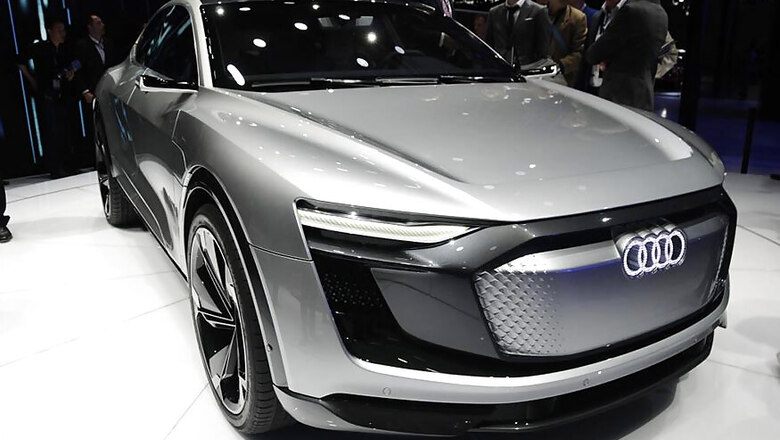
views
Not so long ago, the biennial Shanghai auto show, if attended by an established carmaker, was done so via its legal department, attempting to sue the country's domestic brands for often outrageous copyright infringement. But today, all of the world's biggest marques are queuing up to attend with the biggest and best new products, an acknowledgement that China is the world's biggest automotive market.
"In 2016, China was once again our largest individual market, with more than 65,000 vehicles sold," said Porsche chairman Oliver Blume, who was launching a market-specific version of the Panamera hybrid with a longer wheelbase for extra rear leg room.
And it isn't just premium brands. Chinese consumers snapped up over 28 million cars last year and 1.27 million of them were Fords and Lincolns.
A market this size and one that is still growing will soon be calling the shots. What chimes with Chinese drivers will soon be the dominant global automotive trend, and, on this week's evidence, what China wants is electric cars and to trade in its long-wheel-base sedans in favour of SUVs.
"China is the world's leading market for electric automobiles. That applies as much to the infrastructure and financial support as it does to sales. There are already about 150,000 charging stations in the country, with another 100,000 due to come on stream by the end of 2017," said Dr Dietmar Voggenreiter, Audi's global head of sales and marketing.
It's why Audi chose to unveil its latest all-electric concept, the e-tron Fastback in China rather than in New York or Geneva, and why BMW is highlighting the investment it's making in strengthening the country's alternative fuel infrastructure.
"We are heavily involved in developing the NEV eco-system with our ChargeNow brand, which will see nearly 50% growth in publicly available charging and a total of 2,500 charging pillars in 15 cities by the end of this year," said Olaf Kastner, President and CEO, BMW Group Region China.
It's also the reason why Bentley, one of the few established marques left that is yet to even offer a hybrid option for its gas-guzzling luxury sedans, coupés and SUVs, was showing off an electric concept and pledging to electrify its current range before the end of the decade.
"Bentley is fully committed to China -- it is a vital market for us. We are focusing on developing an electric model in the future which will meet the luxury mobility needs of customers here and right around the world," said CEO Wolfgang Dürheimer.
Because, like its customer base, the Chinese automotive industry is still in its infancy, the cars it has been producing have historically fallen short of European standards. However, Shanghai also underlined the progress that is being made to close the gap and, in the case of electrification, potentially overtake all.
Qoros unveiled the K-EV concept, a startling electric car study that offers luxury for four, a 500km range and performance figures that would embarrass a Porsche.
NextEV unveiled its first mass-production electric car, a spacious seven-seat SUV that will also come close to offering 300 miles on a single charge.
And Geely's connected car sub-brand Lynk & Co officially launched its first vehicle, the Volvo-co-developed 01 SUV that really could shake up not just electrification, but the concept of personal mobility itself.
All of which is why VW, Audi and Skoda made certain that they came to this year's show with near production plug-in electric concepts of their own and a clear timeline of when these cars will be a reality.
"In the next five years we will be offering five e-tron models in China, including purely battery-powered vehicles with ranges well in excess of 310 miles," said Voggenreiter.



















Comments
0 comment